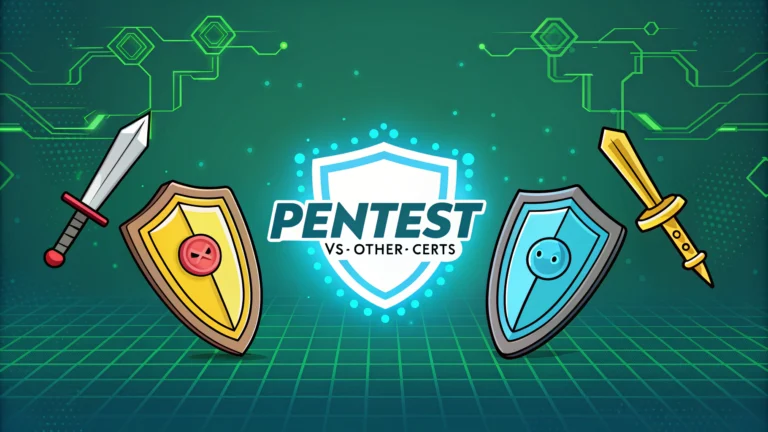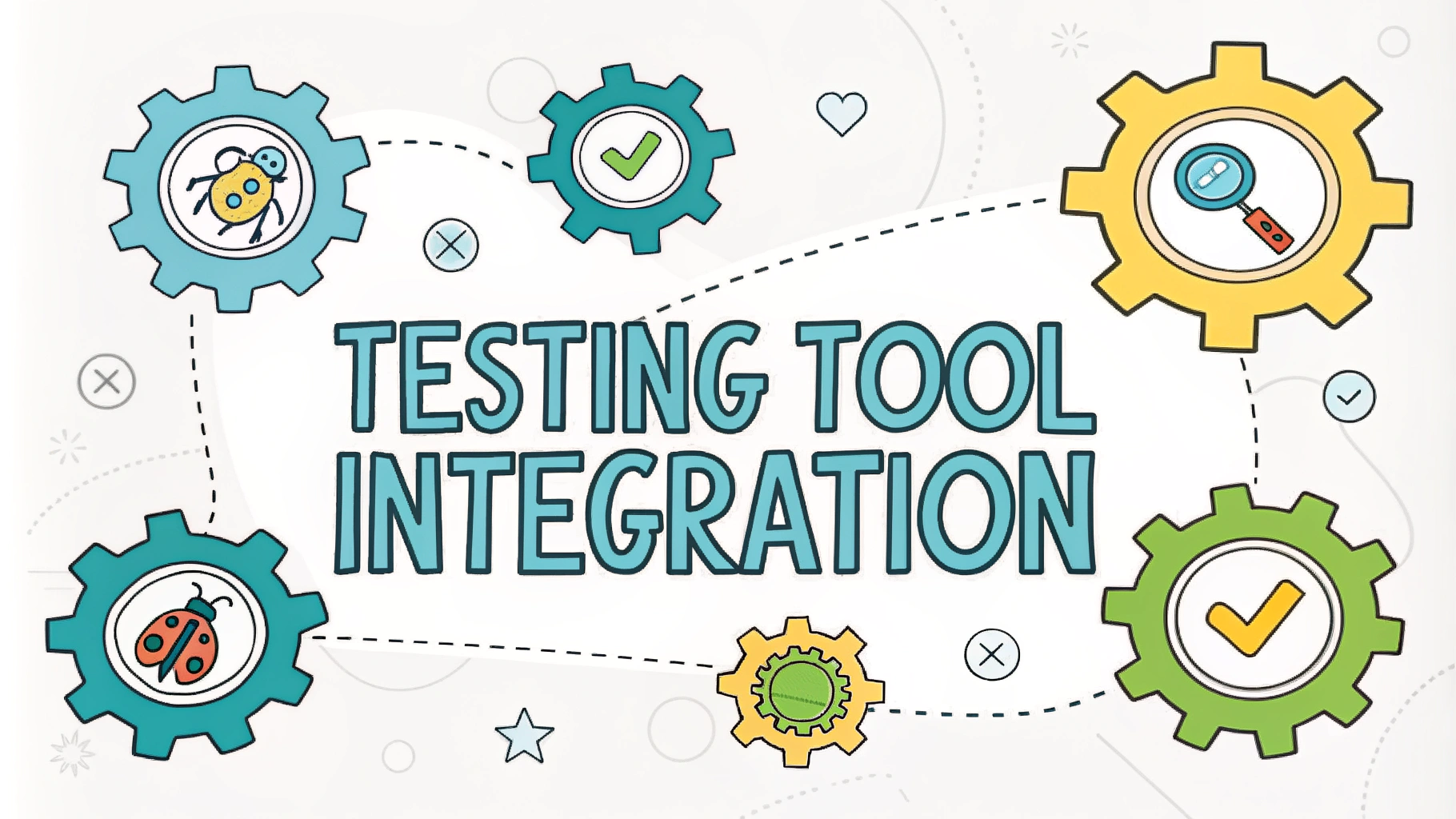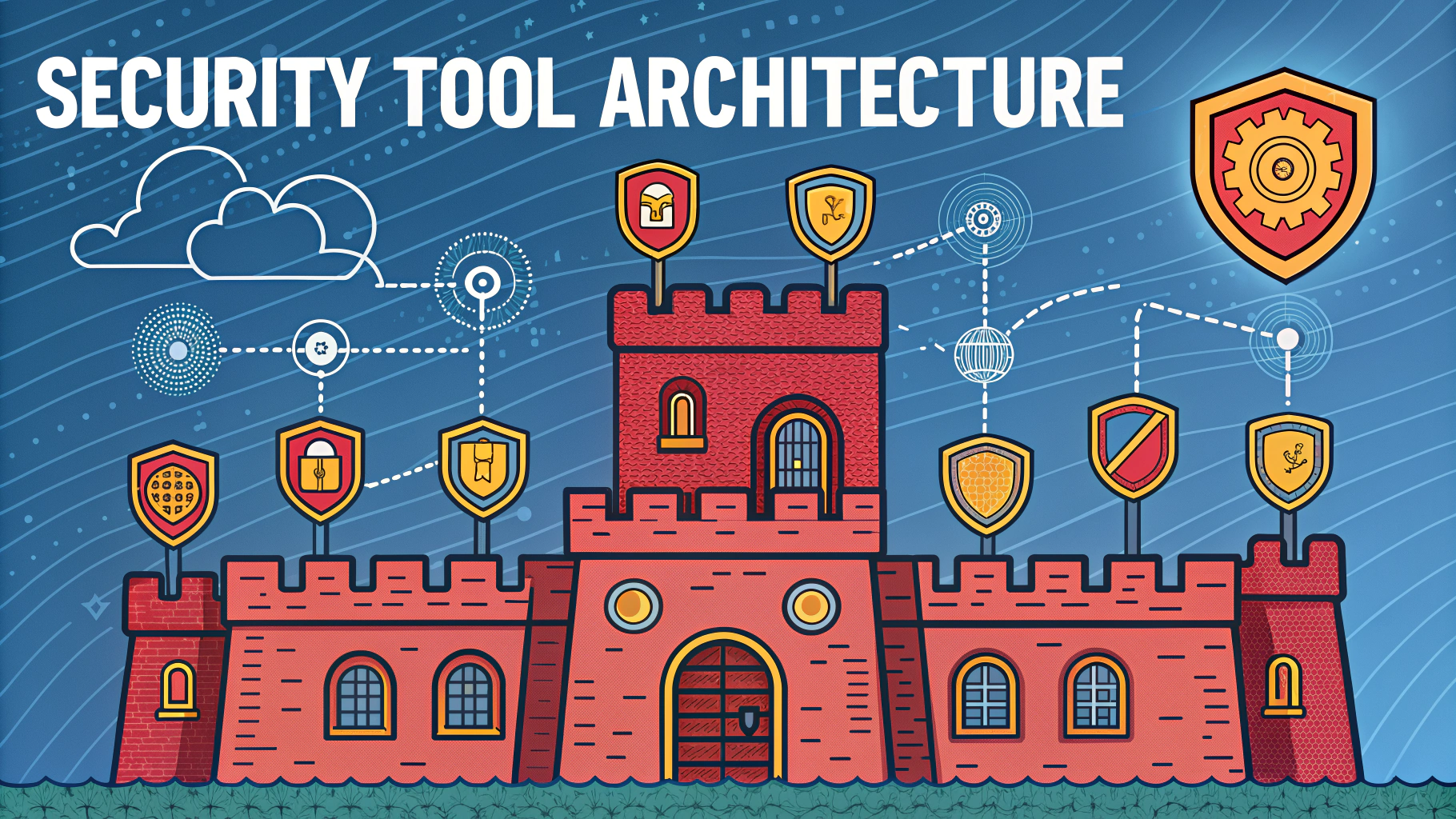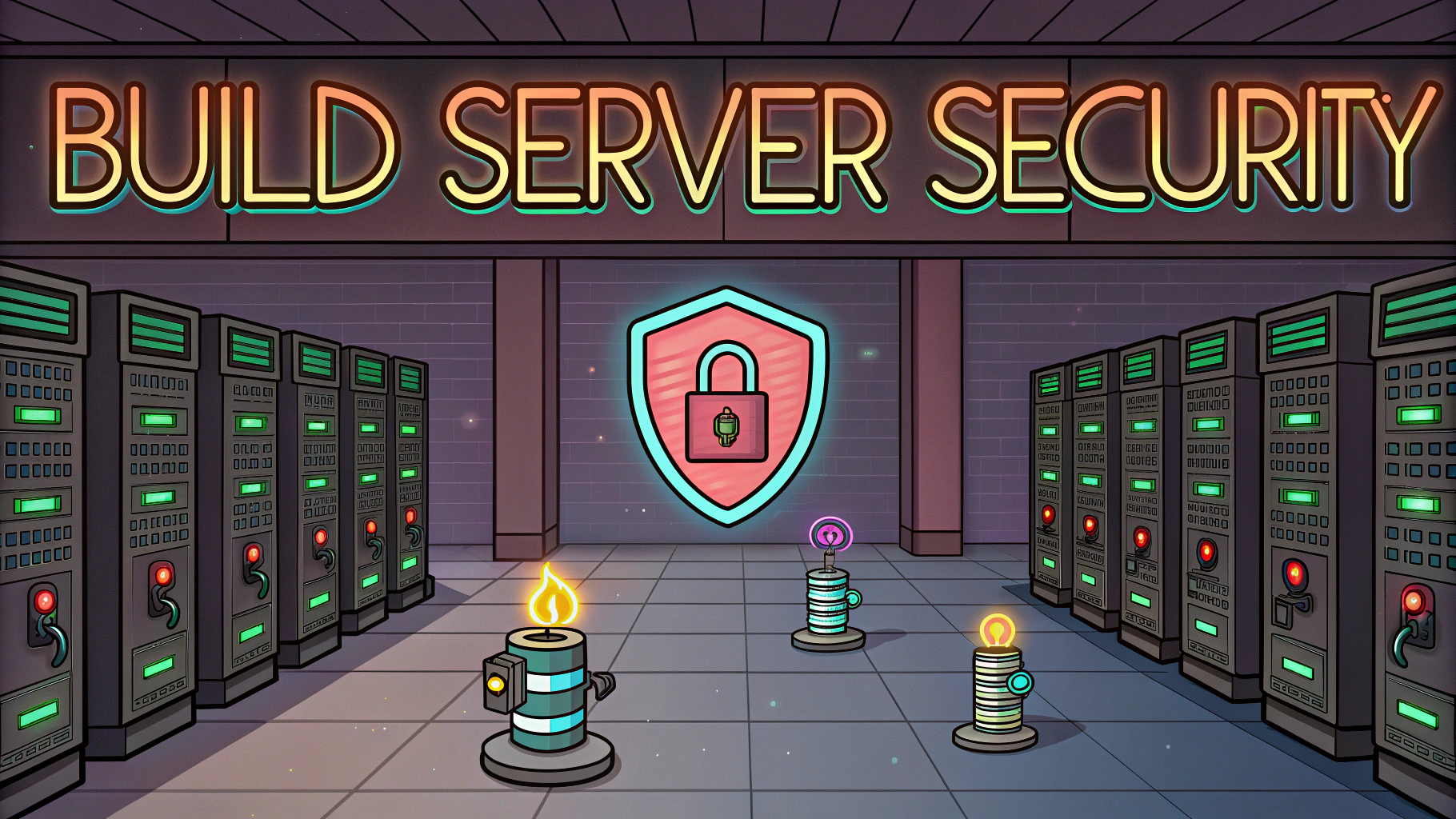The PenTest+ certification from CompTIA stands out as a mid-level cybersecurity credential focusing on hands-on penetration testing and vulnerability assessment skills.
Security professionals looking to validate their practical pen testing abilities often compare PenTest+ with other certifications like CEH, OSCP, and GPEN to determine the best path forward.
This quick guide examines how PenTest+ stacks up against major penetration testing certifications to help you make an informed decision about which one matches your career goals.
PenTest+ vs CEH (Certified Ethical Hacker)
- PenTest+: Performance-based exam with hands-on simulations ($392)
- CEH: Multiple choice questions focused on theoretical knowledge ($950-$1,199)
While CEH is widely recognized, PenTest+ provides more practical testing scenarios that mirror real-world penetration testing tasks.
PenTest+ vs OSCP
- PenTest+: 165-minute exam, no prerequisites
- OSCP: 24-hour practical exam, requires strong technical background ($999-$1,499)
OSCP is considered more challenging and prestigious, but PenTest+ serves as an excellent stepping stone before pursuing OSCP.
PenTest+ vs GPEN
- PenTest+: Performance-based testing with multiple choice
- GPEN: Knowledge-based exam with practical scenarios ($7,270 with training)
GPEN offers comprehensive training but comes at a higher price point, while PenTest+ provides similar validation at a lower cost.
Key Features of PenTest+
- Hands-on simulation labs
- Coverage of latest attack vectors
- Focus on both attack and defense
- Regular content updates
- Industry recognition
Certification Requirements
| Requirement | Details |
|---|---|
| Experience | 3-4 years recommended |
| Prerequisites | None required, Network+ and Security+ recommended |
| Renewal | Every 3 years |
Career Impact and Salary Potential
- Entry-level Penetration Tester: $60,000-$85,000
- Mid-level Penetration Tester: $85,000-$120,000
- Senior Penetration Tester: $120,000-$160,000+
Making Your Choice
Choose PenTest+ if you need a balanced certification that validates both practical skills and theoretical knowledge at a reasonable cost.
Select OSCP if you’re ready for an advanced challenge and want the most respected hands-on certification.
Pick CEH if your organization specifically requires it or if you’re new to penetration testing.
Additional Resources
- CompTIA Official PenTest+ Page: https://www.comptia.org/certifications/pentest
- Official Study Guide: ISBN: 978-1119864493
- Practice Tests: Available through CompTIA Store
Next Steps for Success
Start with Security+ if you’re new to cybersecurity, then progress to PenTest+ before attempting OSCP for a natural skill progression.
Training and Preparation Tips
- Complete hands-on labs using virtual environments
- Practice with common penetration testing tools
- Join online cybersecurity communities
- Participate in CTF (Capture The Flag) competitions
- Build a home lab for testing
Exam Day Strategies
- Review performance-based questions first
- Manage time effectively between sections
- Take notes during practical exercises
- Double-check configurations before submission
- Read all instructions carefully
Common Tools Covered
- Nmap for network scanning
- Wireshark for packet analysis
- Metasploit Framework
- Burp Suite for web application testing
- Various scripting languages (Python, Bash)
Industry Recognition
| Sector | Acceptance Level |
|---|---|
| Government | High |
| Financial Services | Medium-High |
| Healthcare | Medium |
| Technology | Medium-High |
Advancing Your Penetration Testing Journey
Earning the PenTest+ certification marks a significant milestone in your cybersecurity career. Focus on continuous learning, practical experience, and staying current with emerging threats and technologies. Consider building a certification pathway that aligns with your long-term career objectives and industry demands.
Remember that certifications are valuable tools for validation, but real-world experience and continuous skill development remain crucial for success in the dynamic field of penetration testing.
FAQs
- How does PenTest+ compare to CEH (Certified Ethical Hacker)?
PenTest+ is more hands-on and focuses on practical penetration testing skills, while CEH is more theoretical and covers broader cybersecurity concepts. PenTest+ is also generally less expensive than CEH and doesn’t require training course purchase. - Is PenTest+ recognized in the industry like OSCP?
While OSCP remains the gold standard for penetration testing certifications, PenTest+ is gaining recognition, especially among employers who value CompTIA certifications. OSCP is more rigorous and practical but PenTest+ serves as a solid intermediate-level certification. - What are the prerequisites for PenTest+?
CompTIA recommends 3-4 years of hands-on information security experience and achieving Network+ and Security+ certifications, though these are not mandatory requirements to take the exam. - How does PenTest+ compare to eJPT?
eJPT (eLearnSecurity Junior Penetration Tester) is considered entry-level while PenTest+ is intermediate. eJPT is more practical with its exam being fully hands-on, while PenTest+ combines multiple-choice questions with performance-based scenarios. - Is PenTest+ harder than Security+?
Yes, PenTest+ is more advanced than Security+ and requires deeper technical knowledge of penetration testing concepts, tools, and techniques. Security+ is considered entry-level while PenTest+ is intermediate. - How does PenTest+ compare to GPEN?
GPEN (GIAC Penetration Tester) is generally considered more advanced and expensive than PenTest+. While both cover similar topics, GPEN is more comprehensive and typically preferred in government and large enterprise environments. - What is the renewal process for PenTest+ versus other penetration testing certifications?
PenTest+ requires renewal every three years through continuing education units (CEUs) or retaking the exam. This is more flexible than OSCP (which doesn’t expire) but similar to CEH’s three-year renewal cycle. - Does PenTest+ have practical labs like OSCP?
While PenTest+ exam includes performance-based questions and scenarios, it doesn’t offer the extensive hands-on lab environment that OSCP provides. The exam format is different, combining multiple-choice questions with practical scenarios rather than pure hands-on testing. - How valuable is PenTest+ for DoD positions compared to other certifications?
PenTest+ is approved for DoD 8570 IAT Level II and IAM Level II positions, making it valuable for Department of Defense roles. However, it’s often combined with other certifications like Security+ or CASP+ for DoD positions. - What tools are covered in PenTest+ compared to other penetration testing certifications?
PenTest+ covers common tools like Nmap, Wireshark, and Metasploit, similar to other certifications, but focuses more on understanding tool functionality rather than the extensive hands-on tool usage required by OSCP or GPEN.







